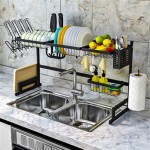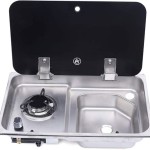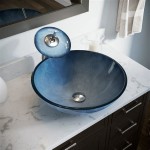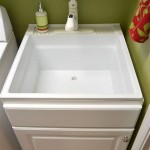Best Sink Faucet Water Filters: A Comprehensive Guide
Access to clean and safe drinking water is a fundamental necessity. While municipal water treatment facilities strive to deliver potable water, contaminants can still enter the water supply through aging infrastructure, agricultural runoff, and industrial discharge. For many homeowners, a sink faucet water filter offers a practical and cost-effective solution for addressing these concerns at the point of use. These filters connect directly to the kitchen faucet, providing filtered water on demand for drinking, cooking, and other household tasks. This article explores the various types of sink faucet water filters available, their benefits, key considerations when choosing one, and top models currently on the market.
Sink faucet water filters are a popular choice for several reasons. They are typically easier to install than under-sink or whole-house filtration systems, requiring minimal plumbing modifications. Their compact design makes them suitable for apartments and smaller kitchens where space is limited. Furthermore, they offer a convenient way to access filtered water without needing to purchase bottled water, reducing plastic waste and saving money in the long run. Understanding the different types of filters and their capabilities is crucial for selecting the right model to meet specific needs and water quality concerns.
Understanding Different Types of Sink Faucet Water Filters
Several types of sink faucet filters are available, each employing different filtration technologies and addressing varying levels of contamination. Choosing the right type depends on the specific contaminants present in the water supply and the desired level of filtration.
One of the most common types is the
activated carbon filter
. These filters use activated carbon to adsorb contaminants, effectively removing chlorine, sediment, volatile organic compounds (VOCs), and other substances that can affect the taste and odor of water. Activated carbon filters are particularly effective at improving the aesthetic qualities of water but may not remove all types of contaminants.Another type is the
sediment filter
. These filters are designed to remove particulate matter such as sand, silt, and rust from the water. Sediment filters can extend the lifespan of other filters in the system by preventing them from becoming clogged with sediment. They also improve the clarity of the water and prevent damage to plumbing fixtures.Ceramic filters
are another option, offering a finer level of filtration. These filters use a porous ceramic material to trap bacteria, protozoa, and other microorganisms. Ceramic filters are effective at removing pathogens from water, making them a good choice for individuals concerned about microbiological contamination.Some sink faucet filters combine multiple filtration stages to provide a more comprehensive level of purification. These
multi-stage filters
may include a sediment filter, an activated carbon filter, and a ceramic filter to remove a wide range of contaminants. Multi-stage filters are often more expensive than single-stage filters but offer superior water quality.Finally,
reverse osmosis (RO) faucet filters
offer the most advanced level of filtration. RO filters use a semi-permeable membrane to remove dissolved solids, heavy metals, and other contaminants from the water. RO filters are highly effective at producing pure, clean water but can be more complex to install and maintain than other types of faucet filters. Because of their complexity and space requirements, they are less common as direct faucet attachments and more often found as under-sink systems.Key Considerations When Choosing a Sink Faucet Water Filter
Selecting the right sink faucet water filter requires careful consideration of several factors. Understanding these factors will help to ensure that the chosen filter meets specific needs and effectively addresses water quality concerns.
First,
water quality
is a primary consideration. It is essential to identify the specific contaminants present in the water supply before selecting a filter. This can be done by testing the water using a home test kit or by having the water tested by a certified laboratory. The test results will reveal the types and levels of contaminants present, allowing for informed selection of a filter that is specifically designed to remove those contaminants.Filtration capacity
is another important factor to consider. The filtration capacity refers to the amount of water that the filter can effectively filter before needing to be replaced. Filters with higher capacities are suitable for households with higher water consumption. It is essential to choose a filter with a capacity that matches the household's needs to ensure consistent water quality.Flow rate
is also a crucial consideration. The flow rate refers to the speed at which water flows through the filter. A filter with a low flow rate may result in a slow and inconvenient water supply. It is important to choose a filter with a flow rate that is adequate for the household's needs. Some filters offer adjustable flow rates, allowing users to customize the water flow to their preferences.Ease of installation and maintenance
should also be considered. Some faucet filters are easy to install and require minimal maintenance, while others may be more complex to install and require regular maintenance. It is important to choose a filter that is easy to install and maintain to ensure that it is properly functioning and providing clean water. Look for filters with easily replaceable cartridges and clear instructions.Filter lifespan
is another important factor. Different filters have different lifespans, ranging from a few months to a year or more. It is important to choose a filter with a lifespan that matches the household's needs and budget. Filters with longer lifespans may be more expensive upfront but can save money in the long run by reducing the frequency of replacement.Certification
is a crucial indicator of a filter's performance and reliability. Look for filters that are certified by independent organizations such as NSF International or the Water Quality Association (WQA). Certification ensures that the filter has been tested and meets industry standards for contaminant removal and performance.Finally,
cost
is always a factor to consider. Faucet filters range in price from inexpensive to quite expensive. It is important to choose a filter that fits the budget while still providing adequate filtration and meeting specific needs. Consider the long-term cost of filter replacement cartridges when evaluating the overall cost of the system.Top Sink Faucet Water Filter Models Currently Available
The market offers a wide range of sink faucet water filters, each with its unique features and benefits. Evaluating different models based on the criteria outlined above can help in making an informed decision.
One popular model is the
PUR Faucet Water Filter
. This filter uses activated carbon to remove chlorine, lead, and other contaminants from the water. It features a simple design that is easy to install and use. The PUR filter also has a filter change indicator that alerts users when it is time to replace the filter cartridge.Another well-regarded option is the
Brita Faucet Water Filter
. This filter also uses activated carbon to remove chlorine, lead, and benzene from the water. The Brita filter has a digital display that shows the remaining filter life. It also features a spray and stream function, allowing users to switch between filtered and unfiltered water.The
Culligan FM-15A Faucet Filter
is a more economical option that provides basic filtration. It utilizes a carbon filter to reduce chlorine taste and odor and sediment. This filter is easy to install and is a good choice for those looking for a simple and affordable filtration solution.For those seeking a more advanced filtration system, the
Waterdrop 320E Faucet Water Filter
offers a multi-stage filtration process. It includes activated carbon, ceramic, and other filtration technologies to remove a wide range of contaminants, including lead, mercury, and chlorine. This filter has a long filter life and provides high-quality water.Finally, the
Engdenton Faucet Water Filter
is a robust option constructed from stainless steel. It boasts a unique filter element with a 5-layer filtration system to remove rust, sediment, chlorine, and other impurities. It's a durable option for those seeking a long-lasting solution.When evaluating these and other models, it's important to compare their specifications, performance data, and user reviews. Consider the specific water quality concerns, flow rate requirements, and budget constraints to choose the filter that best meets individual needs.
In conclusion, sink faucet water filters offer a convenient and effective way to improve water quality at the point of use. By understanding the different types of filters available, considering key factors such as water quality, filtration capacity, and ease of maintenance, and evaluating top models on the market, individuals can choose a filter that meets their specific needs and provides clean, safe drinking water.

The Best Faucet Mounted Water Filter Of 2025 Reviews By Wirecutter

7 Best Water Filters For Your Sink 2024 Review The Good Trade

The Best Faucet Mounted Water Filter Of 2025 Reviews By Wirecutter

Best Faucet Mounted Water Filters Of 2025 Consumer Reports

What Are Kitchen Faucet Filters And Do They Really Work Culligan

7 Best Water Filters For Your Sink 2024 Review The Good Trade

Reviews For Pur Faucet Mount Filtration System White Pg 4 The Home

7 Best Water Filters For Your Sink 2024 Review The Good Trade

The 6 Best Faucet Water Filters For Your Kitchen Sink

Top 5 Best Faucet Water Filters 2025 Reviewed







